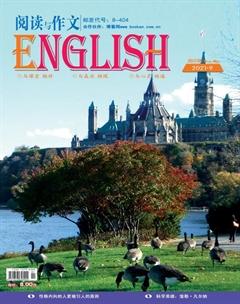A New Day for Traditional
The moment he exited the spot-light for backstage, applause still booming across a temporary stage in an ancient temple, Zhu Feng tore off his hairnet and peeled off his sweat-saturated costume. “Several of my moves in the last act, Broken Bridge, werent perfect,” he grimaced, but none of the satisfied spectators in Dongjing Vil- lage, Taizhou City in southeastern Chinas Zhejiang Province, seemed to notice.
At age 26, Zhu is already a star in Zhejiang Taizhou Luantan Troupe. That day, his troupe was invited to perform the opera The Legend of White Snake: Prelude in Dongjing. “The 2.5-hour-long opera was specifically requested by villagers,” Zhu explained while removing his makeup. “In fact, its the most popular in our repertoire this year.”
Taizhou Luantan is one of only a few of Chinas traditional operas that blend a variety of tune patterns, hence its name, which literally means “mixed tunes.”Dubbed a “living fossil of Chinese opera,” it originated in the early Qing Dynasty (1644-1911). As the only existing opera genrenamed “Luantan” in the country, it was listed among the first group of items on the National Intangible Cultural Heritage List in 2006. However, the time-honored opera hasnt had it easy in the modern era.
Like many other regional traditional operas in China, Taizhou Luantan has endured many ups and downs across its history of more than 300 years, and was once on the verge of extinction. Fortunately, it survived thanks to support from the local government. As a private arts organization, the Taizhou Luantan Troupe receives financial support of 1 million yuan annually from the government of Taizhou. Moreover, the troupe has attracted sponsorship from several local enterprises. In recent years, the troupe has performed about 130 times annually, and its fame has grown with each passing day. Present members beam with pride when recalling 2010, when the troupe was awarded the Top Special Prize after performing at the 27th International Opera Festival in Germany, the largest and oldest opera event in Europe.
However, inheritance remains a major difficulty facing the opera. Historically, its literary canon included more than 300 plays, of which only 13 full-length titles are known today, in addition to two dozen pieces of others. “For various reasons, Taizhou Luantan once disappeared for 30 years,” sighed Shang Wenbo, president of the troupe. “Many elderly artists passed away, and some old plays were lost with them.” While reviving many traditional plays, each year the troupe also creates a new play set in modern times. Currently, it is rehearsing an opera called Online Game Boy. “The art form will walk further only if we continue innovating while inheriting tradition,” Shang adds.
Rural areas remain the largest market for Taizhou Luantan. Especially in summer months, villagers like to spend warm nights watching performances after dinner.“Previously, most villagers preferred Yue Opera,” Zhu Feng recalls, “and Taizhou Luantan wasnt as popular as it is today. Perhaps due to our persistent spirit and innovative plays incorporating modern elements, increasing numbers of villagers have fallen in love with the art in recent years.”
Zhu cant count how many times he has performed in Dongjing Village. Early in the morning, almost every member of the troupe, including lead actors and actresses, arrived to help erect the stage. Half an hour before the performance started, Bao Chenre, who played Bai Suzhen(White Snake), painted her eyebrows backstage, Zheng Liuqian, playing Green Snake, made final touches on her headwear, and other young actors began warming up their bodies and voices. When darkness fell, the curtain finally rose. After hours of rising action, the scene known as “Water Fighting” marked the plays climax. On stage, some waved green banners to represent billows, Green Snake danced with a sword, and warriors flipped across the stage acrobatically. The audience burst into thunderous applause.
“Those young men were recently recruited by our troupe,” remarked Fu Linhua, a veteran actor noted as an inheritor of the intangible cultural heritage, pointing at the performers playing the warriors. “I hope some of them will grow into excellent actors soon.” The Taizhou Luantan Troupe is suffering a talent shortage. Many talented performers have either quit the profession or been headhunted by other troupes.“Other troupes have tried to lure away our performers like Zhu Feng and Bao Chenre. Fortunately, they wanted to stay.”
Someone once asked Zhu Feng what it would take for him to leave the troupe. After all, his income is much humbler than that of stars elsewhere. “Ive worked with this troupe for a long time,” Zhu grins. “Its my responsibility, along with Mr. Fu, to act as a model for younger performers so that Taizhou Luantan can be handed down.”
- 阅读与作文(英语高中版)的其它文章
- 鸟
- 最后一片叶子
- 性格内向的人更吸引人的原因
- 超人气偶像鹿晗
- 科学英雄:儒勒·凡尔纳
- EYIVillage

